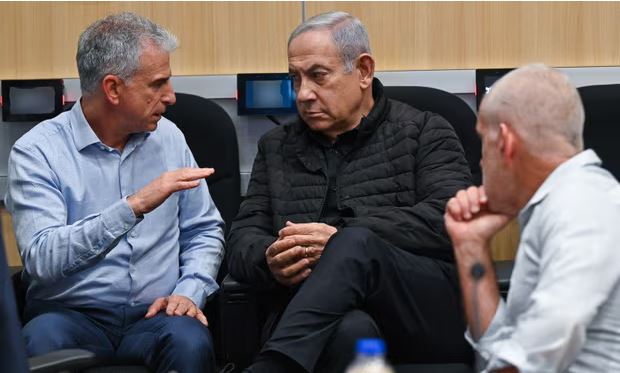
Israeli critics fear backfire for Netanyahu’s strategy to kill top Hamas leaders
text_fieldsThe wounded Israel, after an attack on its vaunted security system on October 7, is in vehement pursuance to regain the confidence of the people by announcing the elimination of all of the top leaders of Hamas wherever they are in the world.
The strategy, named ‘Operation Nili,’ an acronym for a biblical phrase in Hebrew meaning ‘the eternal one of Israel will not lie,’ however, does not instil confidence in many who fear a backfire if the country goes ahead with the purported plan, citing previous experiences.
Israeli Prime Minister Benjamin Netanyahu revealed the new approach, emphasizing that Mossad, Israel's overseas intelligence service, had been instructed to "assassinate all the leaders of Hamas wherever they are."
The campaign, dubbed by the head of Shin Bet as "our Munich," draws parallels to Israel's retaliatory actions following the Palestinian extremist attack on the Munich Olympics in 1972.
While the current focus is on targeting Hamas leaders in Gaza, the campaign's scope extends to leaders based in Qatar, Turkey, Lebanon, and other support networks. Some analysts question the practicality and effectiveness of such an operation, suggesting it may be more about restoring public confidence in Israel's security services than achieving tangible results.
Critics argue that the strategy of assassinations has limited effectiveness and doesn't address the root issues, reported The Guardian, quoting experts.
Yossi Melman, a veteran journalist covering Israeli security services, dismisses the approach, stating, "The Israeli intelligence community is in love with assassinations, and now they are ashamed, humiliated and they want to redeem themselves."
Historical examples are cited, such as the targeted killings of Fathi Shaqaqi and Imad Mughniyeh, which had strategic effects but were not enduring. Experts highlight that these actions did not act as a deterrent, a key goal of such campaigns.
The Guardian report also quoted Palestinians who were targets of past assassination attempts, revealing that these attempts strengthened their convictions and boosted recruitment to their factions. The argument against such campaigns is supported by the notion that assassination doesn't necessarily prevent the rise of new leaders or deter the targeted organization.
The comparison to the post-Munich campaign raises questions about the long-term impact and unintended consequences. While some assassinations had a strategic effect, groups like Hezbollah and Palestine Islamic Jihad managed to regroup and continue their activities.
In response to the announced campaign, former targets argue that assassination attempts only intensified their resolve. Bassem Abu Sharif, who survived an Israeli bombing in 1972, emphasized how the attack made him more determined to continue his activism.
As Israel contemplates a widespread global campaign, there are doubts about its feasibility. Geopolitical considerations, warnings from countries hosting Hamas leaders, and the diplomatic fallout from such actions could limit the effectiveness of the strategy. President Recep Tayyip Erdoğan of Turkey has cautioned against targeting Hamas officials on Turkish soil, and the potential fallout in Europe is deemed "catastrophic."
The question remains whether this aggressive strategy is practicable in the current geopolitical landscape. The days of clandestine operations in Europe, as seen in the aftermath of Munich, are considered by some as outdated and diplomatically unwise.
While Israeli officials argue that force is effective in the right political circumstances, critics maintain that the approach may win battles but not solve the underlying Palestinian problem. The complexity of the situation requires a nuanced and diplomatic solution.























